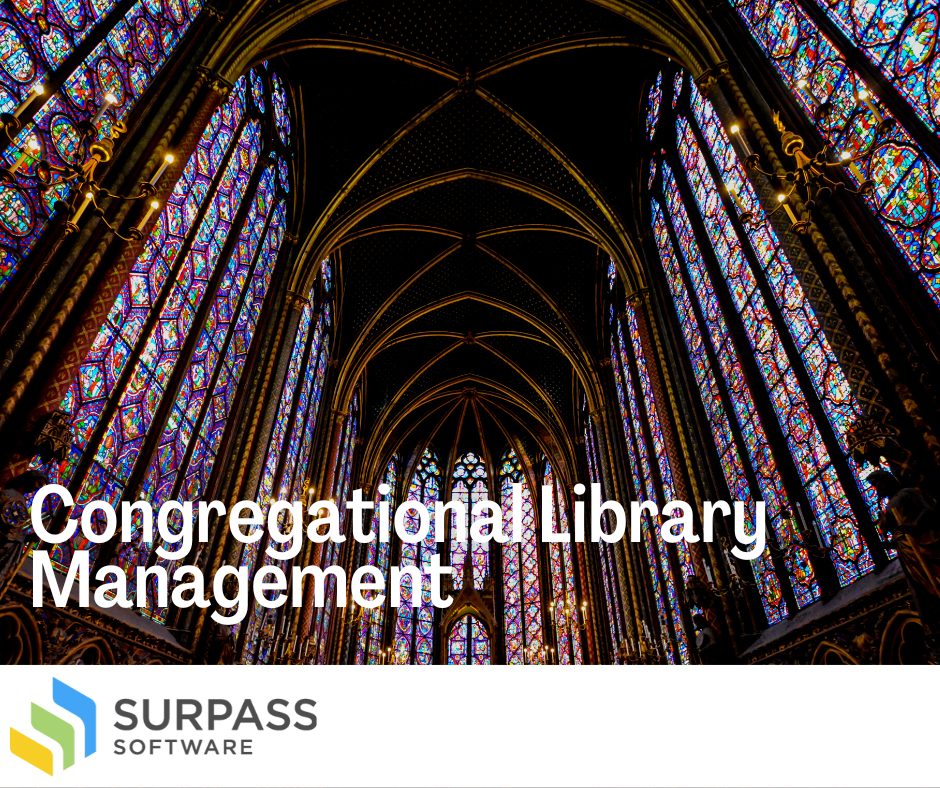Whether you are a church, synagogue, temple, mosque, or any other congregational religious institution, a religious organization’s library is more than a collection of books, DVDs, and other media. It is an integral part of the congregational community, and its value far exceeds its physical space and monetary worth. The library management of a congregation’s resource collections is not the same as that of any other organization. The scope, range, and purpose of a congregational library, as well as its all-important theological underpinnings, renders it unique.
Every ministry team should have a library management system in place. At first, this may seem like a mundane piece of functionality or even an unnecessary expense that is not necessarily important to your organization. Still, you would be surprised how many congregations struggle with their library management systems. The good news is that it’s easy to find an excellent library management system for your congregation. The bad news is that many overlook the need for a solution that can maximize and streamline their organization. In this article, you will learn why your congregation should get a library management system.
Why Do Congregations Need a Library?
Many people perceive religious institutions as a place to listen to sermons, connect with friends, probably offer voluntary services, and repeat the routine. However, they are more than that; it is an institution for learning, and this learning is not restricted to the words of a preacher. The library allows people to read, research, and learn more about different facets of their lives. The following points are some reasons why a library is essential for congregations.
Learning the Word
A library serves as a repository for information, much like a book does. A congregational library provides a place where members can find resources to help them learn more about their faith, grow in their spiritual relationships, and deepen their understanding of Scripture.
Religious institutions have always been places where people come together to learn and grow through study, worship, and fellowship. Libraries can help institutions continue this tradition by providing access to resources outside the walls to help them do this work better.
Train Children in the Way They Should Grow
Religious institutions have a responsibility to train children in the right way, and that includes providing them with an environment in which they can learn and grow. A library can help you by providing a space where children can come together and be immersed in the things that matter to them. In addition, it allows parents to feel confident that their children are well-informed about important topics and issues.
Religious institutions need a library because it’s where children will learn about God and what He wants for them, how to be good people, good Christians, and live based on God’s word. Congregational libraries can also help children learn how to read, write, and think critically about issues that matter early.
What You Can Find in the Congregational Library
A large part of what makes a congregation’s library valuable is its ability to help educate people on topics related to religion and spirituality. There are many different types of materials available for use at a congregational library: books, studies, video series, and much more. Each of them has a place in growing the institution and its congregants.
Providing these resources for congregants and visitors alike is a great way to educate and grow their path.
Importance of Library Management Systems in Congregations
A good library management system is a definite necessity for any congregation or ministry. It is designed for efficient management and easy retrieval of records at any time. Religious centers need library management systems for the following reasons.
Inventory System Management
The inventory system is the backbone of most organizational libraries, and congregational libraries are no exception. You need an inventory system to track the number of items they have, where they are currently, add new resources, and more.
It’s easy to get bogged down in the details of collecting and storing books, but you need to know how much of your collection is usable. A good inventory system will tell you what needs replacing, what needs to be repaired, and what parts of your collection are missing entirely. This knowledge will help you determine where to invest your time and money as you continue to build up your library.
Resource Management
One of the most important aspects of a congregational library management system is accounting. The ability to track the books that are checked out, the books that have been read and returned, and other relevant data can help staff make informed decisions about which books they should purchase, as well as how many copies of each book they should order.
Conclusion
Keeping the congregational library up-to-date is a time-consuming and laborious task often relegated to the secretary. With today’s technology, there are many new options for a more accessible alternative to this. By using a Library Management System (LMS), your organization can eliminate this tedium without sacrificing any of the needed oversight of your congregation’s library collection.
About Surpass
Surpass Cloud is the easy-to-use, cloud-based library management system for libraries of all types and sizes. Whether you’re a school, religious institution, museum, business, or any other organization with resources to lend, Surpass is likely a good fit for you. We pride ourselves on being affordable and flexible, with an expert support team ready to help you at a moment’s notice.
Schedule a free demo to see Surpass in action.




